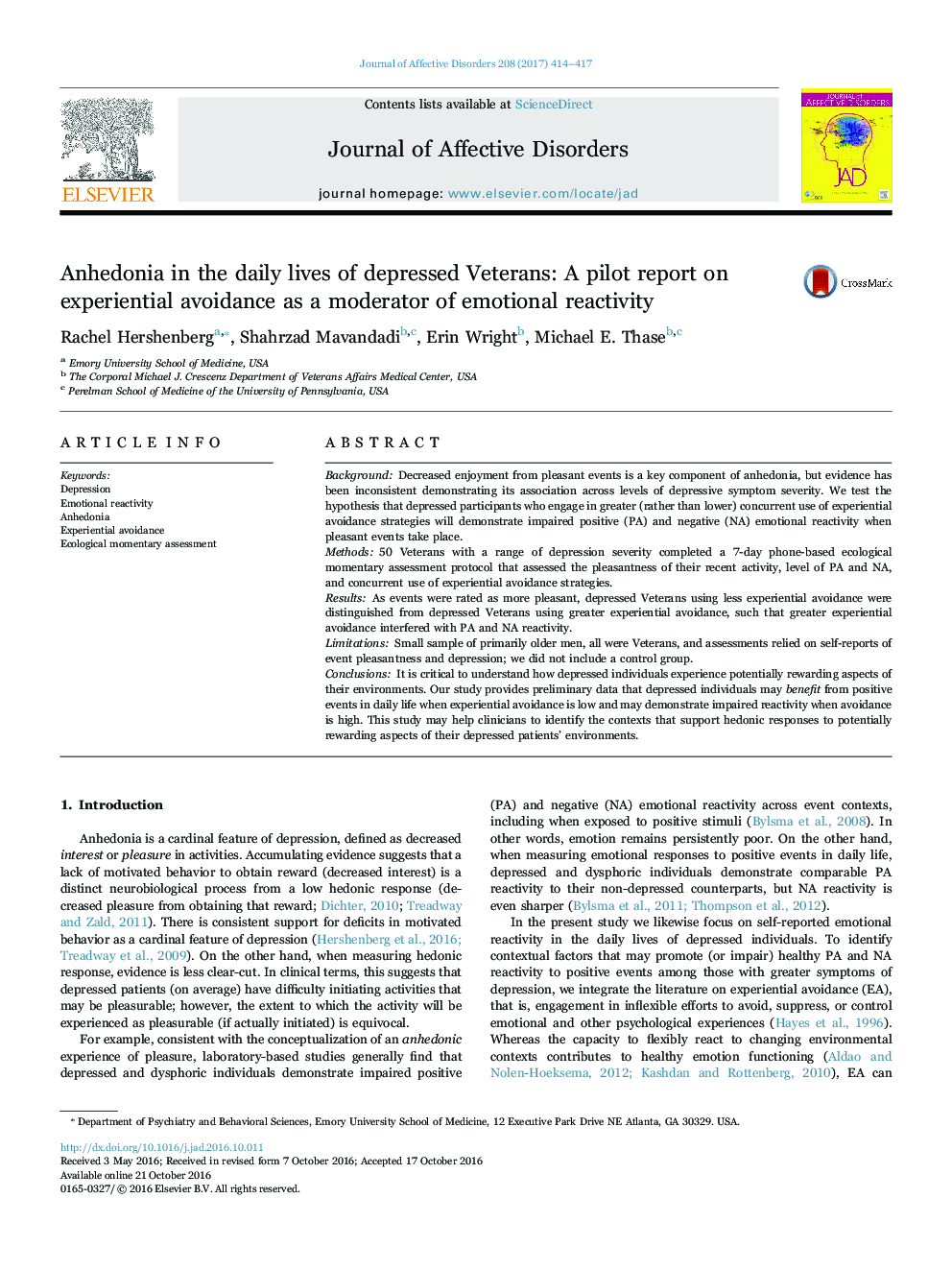| Article ID | Journal | Published Year | Pages | File Type |
|---|---|---|---|---|
| 5722106 | Journal of Affective Disorders | 2017 | 4 Pages |
â¢Veterans with a range of depression completed a 7-d EMA protocol.â¢We assessed emotional reactivity to pleasant events and experiential avoidance (EA).â¢Greater EA interfered with PA and NA reactivity.â¢EA may identify if depressed Veterans are likely to benefit from positive events.
BackgroundDecreased enjoyment from pleasant events is a key component of anhedonia, but evidence has been inconsistent demonstrating its association across levels of depressive symptom severity. We test the hypothesis that depressed participants who engage in greater (rather than lower) concurrent use of experiential avoidance strategies will demonstrate impaired positive (PA) and negative (NA) emotional reactivity when pleasant events take place.Methods50 Veterans with a range of depression severity completed a 7-day phone-based ecological momentary assessment protocol that assessed the pleasantness of their recent activity, level of PA and NA, and concurrent use of experiential avoidance strategies.ResultsAs events were rated as more pleasant, depressed Veterans using less experiential avoidance were distinguished from depressed Veterans using greater experiential avoidance, such that greater experiential avoidance interfered with PA and NA reactivity.LimitationsSmall sample of primarily older men, all were Veterans, and assessments relied on self-reports of event pleasantness and depression; we did not include a control group.ConclusionsIt is critical to understand how depressed individuals experience potentially rewarding aspects of their environments. Our study provides preliminary data that depressed individuals may benefit from positive events in daily life when experiential avoidance is low and may demonstrate impaired reactivity when avoidance is high. This study may help clinicians to identify the contexts that support hedonic responses to potentially rewarding aspects of their depressed patients' environments.
